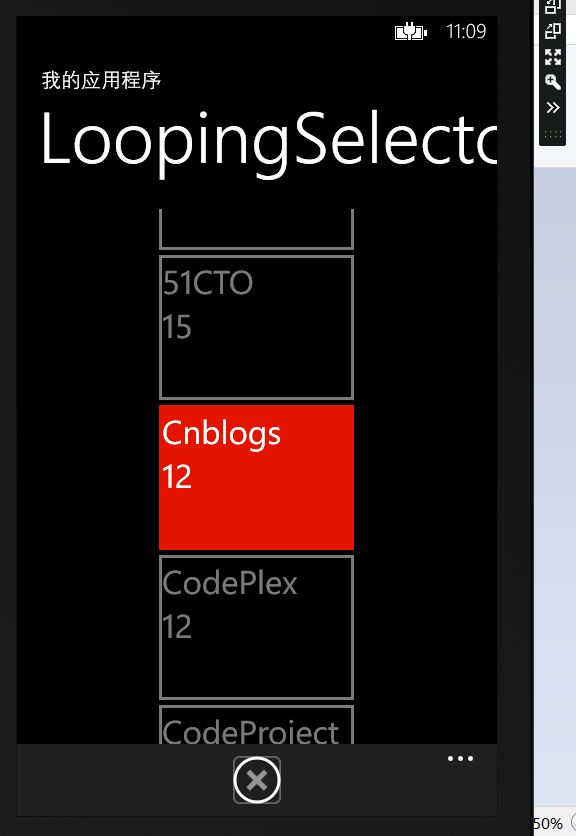- k8s中topologyKey 的作用
容器云
容器云kubernetes容器云原生
spec:affinity:nodeAffinity:requiredDuringSchedulingIgnoredDuringExecution:nodeSelectorTerms:-matchExpressions:-key:rcs-msg-notify-prodoperator:Invalues:-'true'podAffinity:requiredDuringSchedulingIgnor
- JavaIO四大模型:NIO(IO多路复用)
Colourful.
Java网络编程java网络
文章目录概述NIO涉及到的名词JavaNIO服务端和客户端流程概述Java中的Selector和Linux中的epoll都是基友IO多路复用的,有时也被称为异步阻塞IO。我们之前介绍过,同步阻塞I/O和同步非阻塞IO。对于同步阻塞I/O来说,每次进行I/O时,我们的用户线程都会阻塞,显然这在高并发下效率很低。对于同步非阻塞I/O来说,每次进行I/O,虽然在内核缓冲区还没有数据的情况下,会给用户线程
- Spring容器中注册组件的几种方式
jarenyVO
SpringBootspringjava后端springboot
Spring容器中注册组件的几种方式本文大纲一、@Configuration和@Bean给容器中注册组件1.1.@Conditional按照条件注册bean二、@ComponentScan自动扫描组件三、@Import给容器中快速导入一个组件3.1.@Import使用class导入3.2.@Import使用ImportSelector全类路径名3.3.@Import使用ImportBeanDefi
- selenium UI自动化元素定位中classname和CSS区别
nanzhuhe
测试seleniumui自动化
在使用Selenium进行Web自动化测试时,定位元素是核心任务之一。Selenium提供了多种定位策略,包括通过ID、Name、ClassName、CSSSelector、XPath等。在这些定位策略中,ClassName(classname)和CSSSelector(CSSs)虽然经常被混淆,但它们在功能和用法上有所不同。ClassName(classname)ClassName是一种定位策略
- (18)java+ selenium自动化测试-元素定位之By css中篇
程序员的世界你不懂
javaseleniumcss
1.简介我们继续-css的定位元素的方法:ID属性值定位、其他属性值定位和使用属性值的一部分定位(这个类似xpath的模糊定位)。2.常用定位方法(8种)(1)id(2)name(3)classname(4)tagname(5)linktext(6)partiallinktext(7)xpath(8)cssselector(本篇讲解)3.自动测试实战以百度首页为例,将CSS的各种定位方法一一讲解和
- C3新增特性
小胖同学~
前端css
✅一、选择器(Selectors)1.属性选择器[attr^=value]:匹配属性值以特定字符串开头的元素。[attr$=value]:匹配属性值以特定字符串结尾的元素。[attr*=value]:匹配属性值包含特定字符串的元素。2.子元素和兄弟元素选择器:nth-child(n):匹配父元素下的第n个子元素。:nth-last-child(n):匹配父元素下的倒数第n个子元素。:nth-of-
- Keil中 L6406E: No space in execution regions with .ANY selector matching heap_4.o(.bss) 错误分析简述
lixzest
stm32C
链接器错误L6406E:Nospaceinexecutionregionswith.ANYselectormatchingheap_4.o(.bss)表明内存分配已超出预期范围,通常与全局/静态变量(.bss段)或堆(Heap)配置有关。以下是逐步解决方案:1.理解错误原因.bss段:存储未初始化的全局变量和静态变量。heap_4.o:通常与FreeRTOS的堆管理(Heap4)相关,Heap4需
- Vue3+TS 视频播放器组件封装(Video.js + Hls.js 最佳组合,从零基础到精通,收藏这篇就够了!
.hljs-comment,.hljs-quote{color:#b6b18b}.hljs-deletion,.hljs-name,.hljs-regexp,.hljs-selector-class,.hljs-selector-id,.hljs-tag,.hljs-template-variable,.hljs-variable{color:#eb3c54}.hljs-built_in,.hlj
- Android录制视频自带铺满多行水印
宝杰X7
Androidandroid音视频
文章目录引言环境要求代码实现总结引言 之前做过几种水印需求,这篇文章是关于使用Android原生库开发录制视频自带满帧文字水印。环境要求Android7.0以上AndroidStudio,官方开发者官网视频录制功能参考开源库PictureSelector的camerax库//用到的Google集成摄像头库constvalcamerax="1.4.2"constvalappcompat="1.2.0
- h5添加购物车动画(贝塞尔曲线)
路光.
动画
思路:获取动画移动到的终点位置,获取动画的起点位置,创建标签,删除标签,动画播放完成创建的domJS代码://返回元素的大小的及其相对于视口的位置获取动画下落的终点位置varcarRect=document.querySelector('.footer-car').getBoundingClientRect();this.jumpTarget={x:carRect.left+carRect.wid
- 微信小程序canvas实现抽奖动画
小糊涂加油
微信小程序小程序
本来想用setdata做抽奖动画的,但是存在合并更新以及性能问题,遂采用canvas的形式。参考了一篇blog,然后加了些抽奖逻辑的改动import{getRandomInt}from"../../utils/util";//components/names/names.tsComponent({lifetimes:{attached(){this.createSelectorQuery().se
- 【高频考点精讲】前端工程师必会的10种DOM操作优化技巧
全栈老李技术面试
前端高频考点精讲前端javascripthtmlcss面试题reactvue
前端工程师必会的10种DOM操作优化技巧(附真实代码示例)作者:全栈老李更新时间:2025年6月适合人群:前端初学者、进阶开发者版权:本文由全栈老李原创,转载请注明出处。最近在给团队做CodeReview时发现,很多同学对DOM操作的性能优化理解还停留在"少用querySelector"这种基础层面。今天全栈老李就给大家系统梳理下那些真正能提升页面性能的DOM操作技巧,都是我在大型项目中验证过
- React状态管理——RTK(Redux Toolkit)
安心不心安
React状态管理react.js前端前端框架
目录一、介绍二、安装三、目录结构设计四、案例store子模块搭建(store/counterStore.js)store主模块搭建(store/index.js)连接redux和react(index.js)react组件使用useSelector+useDispatch获取和修改状态(App.js)一、介绍二、安装//1.使用CRA快速创建React项目npxcreate-react-appre
- 从 v-model 到 defineModel:Vue3 正在悄悄改变开发习惯
代码里的小猫咪
vue前端vue.jsjavascriptv-modeldefineModeldefinePropsdefineEmits
一、组件化与双向绑定的演变背景1.早期前端:手写DOM与状态管理痛点在纯JavaScript时代,我们尝尝直接操作DOM、管理全局变量。随着应用复杂度提升,出现了以下问题:状态混乱:UI状态(表单值、控件可见性)散落在各个回调里,难以维护。模块化隔离不足:不同UI模块互相干扰,数据污染严重。手动同步:每次数据改变,都要手动querySelector→更新属性→补齐事件监听器,十分臃肿。2.MVVM
- 尚硅谷VUE项目-前端项目问题总结05【api-vuex-组件通信-面包屑-排序】
万物可爱_85
vue.jsjavascript前端
尚硅谷VUE项目-前端项目问题总结05search模块开发1.静态页面2.api3.vuex4.search产品模块和search子组件SearchSelector模块5面包屑【含组件兄弟通信$bus,子父自定义事件】6.排序search模块开发1.静态页面2.api//获取search数据/api/listPOST需要传递多个参数//当前接口,给服务器传递一个默认参数,至少是一个空对象expor
- 让没有小窗播放的视频网站的视频小窗播放
万能的小裴同学
前端javascript
让没有小窗播放的视频网站的视频小窗播放//视频小窗播放控制台脚本//将此代码复制到浏览器控制台运行//运行后,页面中的视频将添加小窗播放功能(function(){//获取页面中的所有video元素constvideos=document.querySelectorAll('video');if(videos.length===0){console.log('页面中没有找到video元素');re
- Kafka数据写入流程源码深度剖析(Broker篇)
Edingbrugh.南空
kafkakafka分布式
在Kafka数据写入流程中,Broker端负责接收客户端发送的消息,并将其持久化存储,是整个流程的关键环节。本文将深入KafkaBroker的源码,详细解析消息接收、处理和存储的具体实现。一、网络请求接收与解析Broker通过Processor线程池接收来自客户端的网络请求,Processor线程基于JavaNIO的Selector实现非阻塞I/O,负责监听网络连接和读取数据。其核心处理逻辑如下:
- Vue3中 :deep() 与 :deep 用法区别解析
在Vue3的ScopedCSS中,:deep()用于穿透样式作用域(样式穿透),其括号的使用有明确区别:1.有括号::deep(selector)(推荐写法)css复制下载:deep(.child-class){color:red;}✅正确用法:将需要穿透的选择器放入括号内✅编译后生成类似[data-v-xxx].child-class的选择器✅Vue3.3+官方推荐写法(无括号写法已被标记为废弃
- 用友uap开发nc65按钮配置
qq_31968809
用友ncuap用友用友ncxmlnc65
用友uap开发nc65按钮配置1.在xml文件中配置按钮2.新建一个java类与按钮相对应publicclassSelectOrCancelActionextendsNCAction{privateAbstractAppModelmodel;privatestaticfinallongserialVersionUID=1993918902236291721L;publicSelectOrCance
- html网页设计(旅游网站)
伤心小熊.
html旅游前端html5cssjquery
html部分获取时间hhhvardiv=document.querySelector('div');varmybtn=document.querySelector('button');varh=newDate().getHours();functionmyTime(){varh=newDate().getHours();vars="";if(hTRAVELDESTINATION当季热门旅行目的地旅
- 前端基础知识ES6系列 - 03(数组新增了哪些扩展)
前端小白从0开始
前端es6ecmascriptjavascripthtml5
一、扩展运算符的应用ES6通过扩展元素符...,好比rest参数的逆运算,将一个数组转为用逗号分隔的参数序列console.log(...[1,2,3])//123console.log(1,...[2,3,4],5)//12345[...document.querySelectorAll('div')]//[,,]主要用于函数调用的时候,将一个数组变为参数序列functionpush(array
- 软件测试之自动化测试常用函数
小何好运暴富开心幸福
可用性测试功能测试单元测试
软件测试之自动化测试常用函数自动化测试常用函数1.元素定位1.1cssSelector1.2xpath2.操作测试对象2.1点击/提交对象2.2模拟按键输入2.3清除文本内容2.4获取文本信息2.5断言2.6获取属性值2.7获取页面标题2.8获取页面链接3窗口3.1切换窗口3.2窗口设置大小3.3关闭窗口3.4屏幕截图4等待4.1强制等待4.2隐式等待4.3显示等待5浏览器导航5.1打开网站5.2
- 含eachars的html转pdf
张毫洁
htmlpdf前端
importhtml2canvasfrom‘html2canvas’;import{jsPDF}from‘jspdf’;printDivAsPdf(){console.log(this.baogao.nativeElement);leta=this.baogao.nativeElementasHTMLElement;constbjsElement=a.querySelector('#bjs')as
- Bug问题
帅帅哥的兜兜
bug
一、list页面importReact,{useEffect,useState}from'react';import{shallowEqual,useHistory,useSelector}from'dva';import{Button,message}from'choerodon-ui/pro';importformatterCollectionsfrom'hzero-front/lib/uti
- 使用eCharts绘制中国地图
夏日米米茶
echarts前端javascript
eCharts官网:https://echarts.apache.org/zh/index.html1.首先新建一个html页面,并引入echartseChartsMap2.接着准备地图数据文件从DataV获取GeoJson格式的地图数据:https://datav.aliyun.com/portal/school/atlas/area_selector如果你使用的是.json格式的文件,那么可以
- QuaggaJS 配置参数详解
IT 老王
服务器javalinuxjavascriptQuaggaJS
QuaggaJS配置参数详解QuaggaJS的配置参数非常灵活,可根据不同场景进行深度定制。以下是核心配置项的详细说明和使用示例:一、inputStream配置控制摄像头输入和视频流参数:inputStream:{name:"Live",//流名称(自定义)type:"LiveStream",//实时摄像头流target:document.querySelector('#interactive')
- 做前端五年的感受
前端
做了五年前端,真是一路从“摸石头过河”到现在的“手握利剑”啊。还记得刚开始的时候,写网页就是用最原始的JavaScript加上jQuery,那个时候感觉自己就是大神了——一行$(selector).hide()就能实现炫酷效果,页面动起来特别有成就感。可是,那种写法也蛮“粗糙”,代码一多就乱成一锅粥,维护起来特别费劲。后来慢慢接触到现代框架,先是Vue,再是React,感觉前端的世界突然宽广了很多
- easyexcel导出使用注解设置下拉选数据
maven依赖com.alibabaeasyexcel3.0.5获取下拉数据接口类,下拉数据需实现此接口类publicinterfaceExcelSelectorService{/***获取下拉数据**@returnjava.lang.String[]*@authorSunLingDa*@date2022/9/2016:50*/String[]getSelectorData();/***根据字典k
- el-select 实现分页加载,切换也数滚回到顶部,自定义高度
WKK_
javascriptvue.js前端elementui
el-select实现分页加载,切换也数滚回到顶部,自定义高度1.html2.功能js1.切换回到顶部//添加重置滚动位置的逻辑nextTick(()=>{constdropdown=document.querySelector('.el-select-dropdown.el-scrollbar__wrap');if(dropdown){dropdown.scrollTop=0;}});2.搜索方
- mysql一主多从 k8s部署实际案例
搞不懂语言的程序员
k8s中间件mysqlkubernetes数据库
一、Kubernetes配置(MySQL主从集群)主库StatefulSet配置(master-mysql.yaml):apiVersion:apps/v1kind:StatefulSetmetadata:name:mysql-masterspec:serviceName:"mysql-master"replicas:1selector:matchLabels:app:mysql-masterte
- 设计模式介绍
tntxia
设计模式
设计模式来源于土木工程师 克里斯托弗 亚历山大(http://en.wikipedia.org/wiki/Christopher_Alexander)的早期作品。他经常发表一些作品,内容是总结他在解决设计问题方面的经验,以及这些知识与城市和建筑模式之间有何关联。有一天,亚历山大突然发现,重复使用这些模式可以让某些设计构造取得我们期望的最佳效果。
亚历山大与萨拉-石川佳纯和穆雷 西乐弗斯坦合作
- android高级组件使用(一)
百合不是茶
androidRatingBarSpinner
1、自动完成文本框(AutoCompleteTextView)
AutoCompleteTextView从EditText派生出来,实际上也是一个文本编辑框,但它比普通编辑框多一个功能:当用户输入一个字符后,自动完成文本框会显示一个下拉菜单,供用户从中选择,当用户选择某个菜单项之后,AutoCompleteTextView按用户选择自动填写该文本框。
使用AutoCompleteTex
- [网络与通讯]路由器市场大有潜力可挖掘
comsci
网络
如果国内的电子厂商和计算机设备厂商觉得手机市场已经有点饱和了,那么可以考虑一下交换机和路由器市场的进入问题.....
这方面的技术和知识,目前处在一个开放型的状态,有利于各类小型电子企业进入
&nbs
- 自写简单Redis内存统计shell
商人shang
Linux shell统计Redis内存
#!/bin/bash
address="192.168.150.128:6666,192.168.150.128:6666"
hosts=(${address//,/ })
sfile="staticts.log"
for hostitem in ${hosts[@]}
do
ipport=(${hostitem
- 单例模式(饿汉 vs懒汉)
oloz
单例模式
package 单例模式;
/*
* 应用场景:保证在整个应用之中某个对象的实例只有一个
* 单例模式种的《 懒汉模式》
* */
public class Singleton {
//01 将构造方法私有化,外界就无法用new Singleton()的方式获得实例
private Singleton(){};
//02 申明类得唯一实例
priva
- springMvc json支持
杨白白
json springmvc
1.Spring mvc处理json需要使用jackson的类库,因此需要先引入jackson包
2在spring mvc中解析输入为json格式的数据:使用@RequestBody来设置输入
@RequestMapping("helloJson")
public @ResponseBody
JsonTest helloJson() {
- android播放,掃描添加本地音頻文件
小桔子
最近幾乎沒有什麽事情,繼續鼓搗我的小東西。想在項目中加入一個簡易的音樂播放器功能,就像華為p6桌面上那麼大小的音樂播放器。用過天天動聽或者QQ音樂播放器的人都知道,可已通過本地掃描添加歌曲。不知道他們是怎麼實現的,我覺得應該掃描設備上的所有文件,過濾出音頻文件,每個文件實例化為一個實體,記錄文件名、路徑、歌手、類型、大小等信息。具體算法思想,
- oracle常用命令
aichenglong
oracledba常用命令
1 创建临时表空间
create temporary tablespace user_temp
tempfile 'D:\oracle\oradata\Oracle9i\user_temp.dbf'
size 50m
autoextend on
next 50m maxsize 20480m
extent management local
- 25个Eclipse插件
AILIKES
eclipse插件
提高代码质量的插件1. FindBugsFindBugs可以帮你找到Java代码中的bug,它使用Lesser GNU Public License的自由软件许可。2. CheckstyleCheckstyle插件可以集成到Eclipse IDE中去,能确保Java代码遵循标准代码样式。3. ECLemmaECLemma是一款拥有Eclipse Public License许可的免费工具,它提供了
- Spring MVC拦截器+注解方式实现防止表单重复提交
baalwolf
spring mvc
原理:在新建页面中Session保存token随机码,当保存时验证,通过后删除,当再次点击保存时由于服务器端的Session中已经不存在了,所有无法验证通过。
1.新建注解:
? 1 2 3 4 5 6 7 8 9 10 11 12 13 14 15 16 17 18
- 《Javascript高级程序设计(第3版)》闭包理解
bijian1013
JavaScript
“闭包是指有权访问另一个函数作用域中的变量的函数。”--《Javascript高级程序设计(第3版)》
看以下代码:
<script type="text/javascript">
function outer() {
var i = 10;
return f
- AngularJS Module类的方法
bijian1013
JavaScriptAngularJSModule
AngularJS中的Module类负责定义应用如何启动,它还可以通过声明的方式定义应用中的各个片段。我们来看看它是如何实现这些功能的。
一.Main方法在哪里
如果你是从Java或者Python编程语言转过来的,那么你可能很想知道AngularJS里面的main方法在哪里?这个把所
- [Maven学习笔记七]Maven插件和目标
bit1129
maven插件
插件(plugin)和目标(goal)
Maven,就其本质而言,是一个插件执行框架,Maven的每个目标的执行逻辑都是由插件来完成的,一个插件可以有1个或者几个目标,比如maven-compiler-plugin插件包含compile和testCompile,即maven-compiler-plugin提供了源代码编译和测试源代码编译的两个目标
使用插件和目标使得我们可以干预
- 【Hadoop八】Yarn的资源调度策略
bit1129
hadoop
1. Hadoop的三种调度策略
Hadoop提供了3中作业调用的策略,
FIFO Scheduler
Fair Scheduler
Capacity Scheduler
以上三种调度算法,在Hadoop MR1中就引入了,在Yarn中对它们进行了改进和完善.Fair和Capacity Scheduler用于多用户共享的资源调度
2. 多用户资源共享的调度
- Nginx使用Linux内存加速静态文件访问
ronin47
Nginx是一个非常出色的静态资源web服务器。如果你嫌它还不够快,可以把放在磁盘中的文件,映射到内存中,减少高并发下的磁盘IO。
先做几个假设。nginx.conf中所配置站点的路径是/home/wwwroot/res,站点所对应文件原始存储路径:/opt/web/res
shell脚本非常简单,思路就是拷贝资源文件到内存中,然后在把网站的静态文件链接指向到内存中即可。具体如下:
- 关于Unity3D中的Shader的知识
brotherlamp
unityunity资料unity教程unity视频unity自学
首先先解释下Unity3D的Shader,Unity里面的Shaders是使用一种叫ShaderLab的语言编写的,它同微软的FX文件或者NVIDIA的CgFX有些类似。传统意义上的vertex shader和pixel shader还是使用标准的Cg/HLSL 编程语言编写的。因此Unity文档里面的Shader,都是指用ShaderLab编写的代码,然后我们来看下Unity3D自带的60多个S
- CopyOnWriteArrayList vs ArrayList
bylijinnan
java
package com.ljn.base;
import java.util.ArrayList;
import java.util.Iterator;
import java.util.List;
import java.util.concurrent.CopyOnWriteArrayList;
/**
* 总述:
* 1.ArrayListi不是线程安全的,CopyO
- 内存中栈和堆的区别
chicony
内存
1、内存分配方面:
堆:一般由程序员分配释放, 若程序员不释放,程序结束时可能由OS回收 。注意它与数据结构中的堆是两回事,分配方式是类似于链表。可能用到的关键字如下:new、malloc、delete、free等等。
栈:由编译器(Compiler)自动分配释放,存放函数的参数值,局部变量的值等。其操作方式类似于数据结构中
- 回答一位网友对Scala的提问
chenchao051
scalamap
本来准备在私信里直接回复了,但是发现不太方便,就简要回答在这里。 问题 写道 对于scala的简洁十分佩服,但又觉得比较晦涩,例如一例,Map("a" -> List(11,111)).flatMap(_._2),可否说下最后那个函数做了什么,真正在开发的时候也会如此简洁?谢谢
先回答一点,在实际使用中,Scala毫无疑问就是这么简单。
- mysql 取每组前几条记录
daizj
mysql分组最大值最小值每组三条记录
一、对分组的记录取前N条记录:例如:取每组的前3条最大的记录 1.用子查询: SELECT * FROM tableName a WHERE 3> (SELECT COUNT(*) FROM tableName b WHERE b.id=a.id AND b.cnt>a. cnt) ORDER BY a.id,a.account DE
- HTTP深入浅出 http请求
dcj3sjt126com
http
HTTP(HyperText Transfer Protocol)是一套计算机通过网络进行通信的规则。计算机专家设计出HTTP,使HTTP客户(如Web浏览器)能够从HTTP服务器(Web服务器)请求信息和服务,HTTP目前协议的版本是1.1.HTTP是一种无状态的协议,无状态是指Web浏览器和Web服务器之间不需要建立持久的连接,这意味着当一个客户端向服务器端发出请求,然后We
- 判断MySQL记录是否存在方法比较
dcj3sjt126com
mysql
把数据写入到数据库的时,常常会碰到先要检测要插入的记录是否存在,然后决定是否要写入。
我这里总结了判断记录是否存在的常用方法:
sql语句: select count ( * ) from tablename;
然后读取count(*)的值判断记录是否存在。对于这种方法性能上有些浪费,我们只是想判断记录记录是否存在,没有必要全部都查出来。
- 对HTML XML的一点认识
e200702084
htmlxml
感谢http://www.w3school.com.cn提供的资料
HTML 文档中的每个成分都是一个节点。
节点
根据 DOM,HTML 文档中的每个成分都是一个节点。
DOM 是这样规定的:
整个文档是一个文档节点
每个 HTML 标签是一个元素节点
包含在 HTML 元素中的文本是文本节点
每一个 HTML 属性是一个属性节点
注释属于注释节点
Node 层次
- jquery分页插件
genaiwei
jqueryWeb前端分页插件
//jquery页码控件// 创建一个闭包 (function($) { // 插件的定义 $.fn.pageTool = function(options) { var totalPa
- Mybatis与Ibatis对照入门于学习
Josh_Persistence
mybatisibatis区别联系
一、为什么使用IBatis/Mybatis
对于从事 Java EE 的开发人员来说,iBatis 是一个再熟悉不过的持久层框架了,在 Hibernate、JPA 这样的一站式对象 / 关系映射(O/R Mapping)解决方案盛行之前,iBaits 基本是持久层框架的不二选择。即使在持久层框架层出不穷的今天,iBatis 凭借着易学易用、
- C中怎样合理决定使用那种整数类型?
秋风扫落叶
c数据类型
如果需要大数值(大于32767或小于32767), 使用long 型。 否则, 如果空间很重要 (如有大数组或很多结构), 使用 short 型。 除此之外, 就使用 int 型。 如果严格定义的溢出特征很重要而负值无关紧要, 或者你希望在操作二进制位和字节时避免符号扩展的问题, 请使用对应的无符号类型。 但是, 要注意在表达式中混用有符号和无符号值的情况。
&nbs
- maven问题
zhb8015
maven问题
问题1:
Eclipse 中 新建maven项目 无法添加src/main/java 问题
eclipse创建maevn web项目,在选择maven_archetype_web原型后,默认只有src/main/resources这个Source Floder。
按照maven目录结构,添加src/main/ja
- (二)androidpn-server tomcat版源码解析之--push消息处理
spjich
javaandrodipn推送
在 (一)androidpn-server tomcat版源码解析之--项目启动这篇中,已经描述了整个推送服务器的启动过程,并且把握到了消息的入口即XmppIoHandler这个类,今天我将继续往下分析下面的核心代码,主要分为3大块,链接创建,消息的发送,链接关闭。
先贴一段XmppIoHandler的部分代码
/**
* Invoked from an I/O proc
- 用js中的formData类型解决ajax提交表单时文件不能被serialize方法序列化的问题
中华好儿孙
JavaScriptAjaxWeb上传文件FormData
var formData = new FormData($("#inputFileForm")[0]);
$.ajax({
type:'post',
url:webRoot+"/electronicContractUrl/webapp/uploadfile",
data:formData,
async: false,
ca
- mybatis常用jdbcType数据类型
ysj5125094
mybatismapperjdbcType
MyBatis 通过包含的jdbcType
类型
BIT FLOAT CHAR





